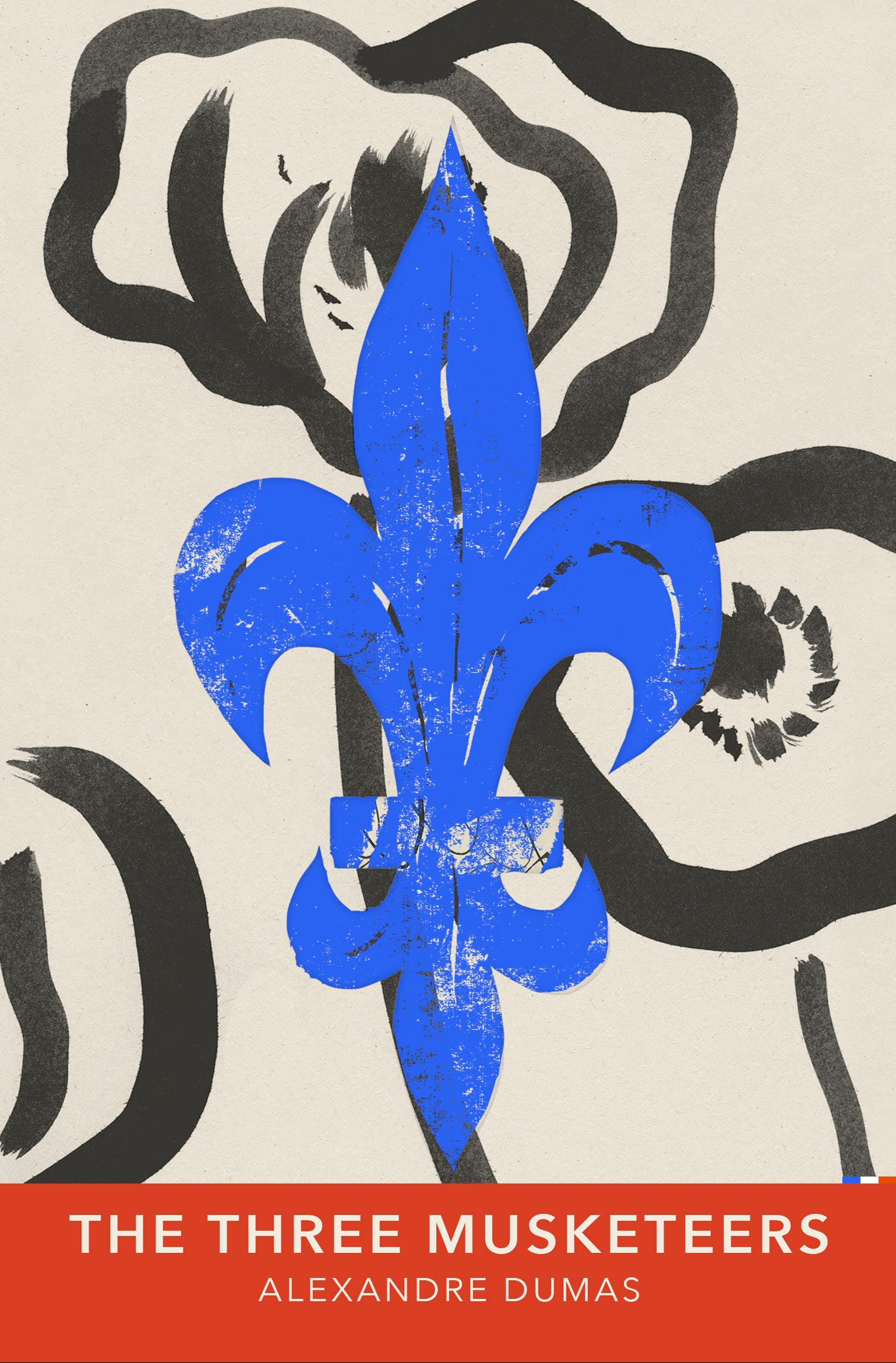內容簡介
內容簡介 法國浪漫主義文豪大仲馬的代表作之一,曾改編為電視劇、電影、動畫、影集…… 劍客的精神:「我為人人,人人為我。」是書中主角們最為人印象深刻的一句話。法國大文豪雨果曾形容大仲馬:「宛如伏爾泰再世。在這受盡恥辱噤若寒蟬的法蘭西,大仲馬是我們最大的安慰。」武俠小說大師金庸也曾說:「此書對我一生影響極大,我之寫武俠小說,可說是受了此書的啟發。」《巴黎三劍客》為大仲馬1844年創作的一部以歷史事件為題材的小說。完美結合了歷史與虛構、愛情與陰謀、沉淪與激情!在冒險中演繹著驚心動魄的善良與邪惡、忠誠與背叛,還有友誼與青春……《巴黎三劍客》的故事以一樁宮闈密謀和拉羅舍爾圍城戰為背景,主人公是一個法國鄉下小子達達尼昂。他善良、淳樸、聰明,一次又一次把自己的朋友從危險中拯救出來,一次又一次打破紅衣主教的陰謀。在那個終日動盪不安的年代,全國接二連三地發生令人惶恐的動亂。領主之間不斷發生爭鬥,國王與紅衣主教相鬥,西班牙人與法蘭西人開戰,偽善的惡人及流氓惡棍不時的攻擊百姓。不得已,居民們必須隨時準備拿起武器對付他們……十七世紀的法國,政治者爭權奪利,矛盾重重。達達尼昂自法國鄉下前往巴黎,準備加入路易十三的火槍衛隊。然而,達達尼昂無意間冒犯了三位火槍手,阿托斯、波托斯和阿拉米斯,他們為了榮譽要和達達尼昂決鬥。本來達達尼昂報著必死之心前往,誰知突然來了紅衣主教的禁衛隊,他們人多勢眾,要和巴黎三劍客決鬥。達達尼昂加入了火槍手這一邊,與之同仇敵愾,一起與禁衛隊戰鬥,最終獲得了勝利,並化解了彼此的誤會,成為莫逆之交。此後,達達尼昂經過努力也加入了火槍隊,四人從此形影不離,有福同享、有難同當。------圍攻拉羅舍爾之戰是路易十三王朝一個重大的政治事件,也是紅衣主教一個重大的軍事舉措。紅衣主教發動這場圍攻戰既有政治意圖也有個人意圖,但就對主教閣下的影響來說,他的個人意圖也許比政治意圖還要大。任何人的目光都比不上紅衣主教黎塞留,他的目光極富洞察力。達達尼昂覺得自己渾身的血液在沸騰,全身打哆嗦。紅衣主教對達達尼昂的來歷一清二楚,並意圖招攬他到自己衛隊中當一名掌旗官。然而,達達尼昂所有的朋友都是國王火槍隊和衛隊裡的人,而仇敵又全是紅衣主教的部下。在此情況之下,如果達達尼昂接受了紅衣主教的提攜,可想而知的是,必會遭到眾人鄙視。遭拒的紅衣主教狀似優雅地表明自己不會記恨達達尼昂,但又語帶特殊含意地對他說:「今後,如果您遇到了什麼不幸,您就要想到,我曾找過您,我做了我能做的一切,我本不想讓這一切不幸降臨於您的。」紅衣主教這最後一句話在達達尼昂內心所引起的那種驚恐感,比一句直接的威脅來得更猛烈!《巴黎三劍客》是大仲馬的成名作。作為一部以歷史事件為題材的傑出通俗小說,它將宮廷爭鬥、風流韻事與巴黎三劍客的冒險經歷巧妙地結合在一起,讀來生動曲折,在藝術上塑造了一群生動鮮明、性格各異的人物形象;在思想內容上真實再現了十七世紀上半葉法國統治階級之間的明爭暗鬥、互相傾軋的政治局勢。一個多世紀以來,本書已被世界各國譯成多種文字。人事滄桑,星移斗轉,但本書始終風靡於世,膾炙人口,一直暢銷不衰,成為一部受世人推崇的世界文學名著。相信每一位讀者在讀完這本書後,都會被故事展現的傳奇色彩與智慧光芒而深深震撼。法國文學批評家阿爾梅拉在《亞歷山大‧仲馬和〈三劍客〉》一書中指出:「三位才華大相逕庭的作家共同寫出這部小說:庫爾蒂茨制訂了梗概和情節;馬凱擬了初稿;仲馬賦予它生動的敘述、對話、風格與生命。」本中文書介出自《世界名著作品集 14: 巴黎三劍客 上 下》風雲時代出版股份有限公司出版All for one, and one for all!The young D'Artagnan and the legendary musketeers Athos, Porthos and Aramis are 'the inseparables' - ready to sacrifice everything in a duel or game of dice in order to defend their honour or that of the King and Queen of France. Handsome and hot-tempered, they dive into raging battles or back-street conspiracies with gusto, especially if by their daring deeds they can thwart the wicked devices of their arch-enemy, Cardinal Richelieu, and his mysterious accomplice, Milady de Winter.'Pure swashbuckling pleasure' Daily TelegraphTRANSLATED BY WILL HOBSONVINTAGE FRENCH CLASSICS - five masterpieces of French fiction in gorgeous new gift editions.
作者介紹
作者介紹 Alexandre Dumas (père) lived a life as romantic as that depicted in his famous novels. He was born on July 24,1802, at Villers-Cotterêts, France, the son of Napoleon’s famous mulatto general, Dumas, His early education was scanty, but his beautiful handwriting secured him a position in Paris in 1822 with the du’Orléans, where he read voraciously and began to write. His first play, Henri III et sa cour (1829), scored a resounding success for its author and for the romantic movement. Numerous dramatic successes followed (including the melodrama Kean , later adapted by Jean-Paul Satre), and so did numerous mistresses and adventures. He took part in the revolution of 1830 and caught cholera during the epidemic of 1832, fathered two illegitimate children by two different mistresses, and then married still another mistress. (The first of these two children, Alexandre Dumas, [fils], became a famous author also,) His lavish spending and flamboyant habits led to the construction of his fabulous Château de Monte-Christo, and in 1851 he fled to Belgium to escape creditors. He died on December 5, 1870, bankrupt but still cheerful, saying of death, “I shall tell her a story, and she will be kind to me.”Dumas’s overall literary output reached over 277 volumes, but his brilliant historical novels made him the most universally read of all French novelists. With collaborators, mainly Auguste Maquet, Dumas wrote such works as The Three Musketeer (1843-44); its sequels, Twenty Years After (1845) and the great mystery The Man in the Iron Mask (1845-50); and The Count of Monte Cristo (1844). L’action and l’amour were the two essential things in life and his fiction. He declared he “elevated history to the dignity of the novel” by means of love affairs, intrigues, imprisonments, hairbreadth escapes, and duels. His work ignored historical accuracy, Psychology, and analysis, but its thrilling adventure and exuberant inventiveness continue to delight readers, and Dumas remains one of the prodigies of nineteenth-century French literature.
